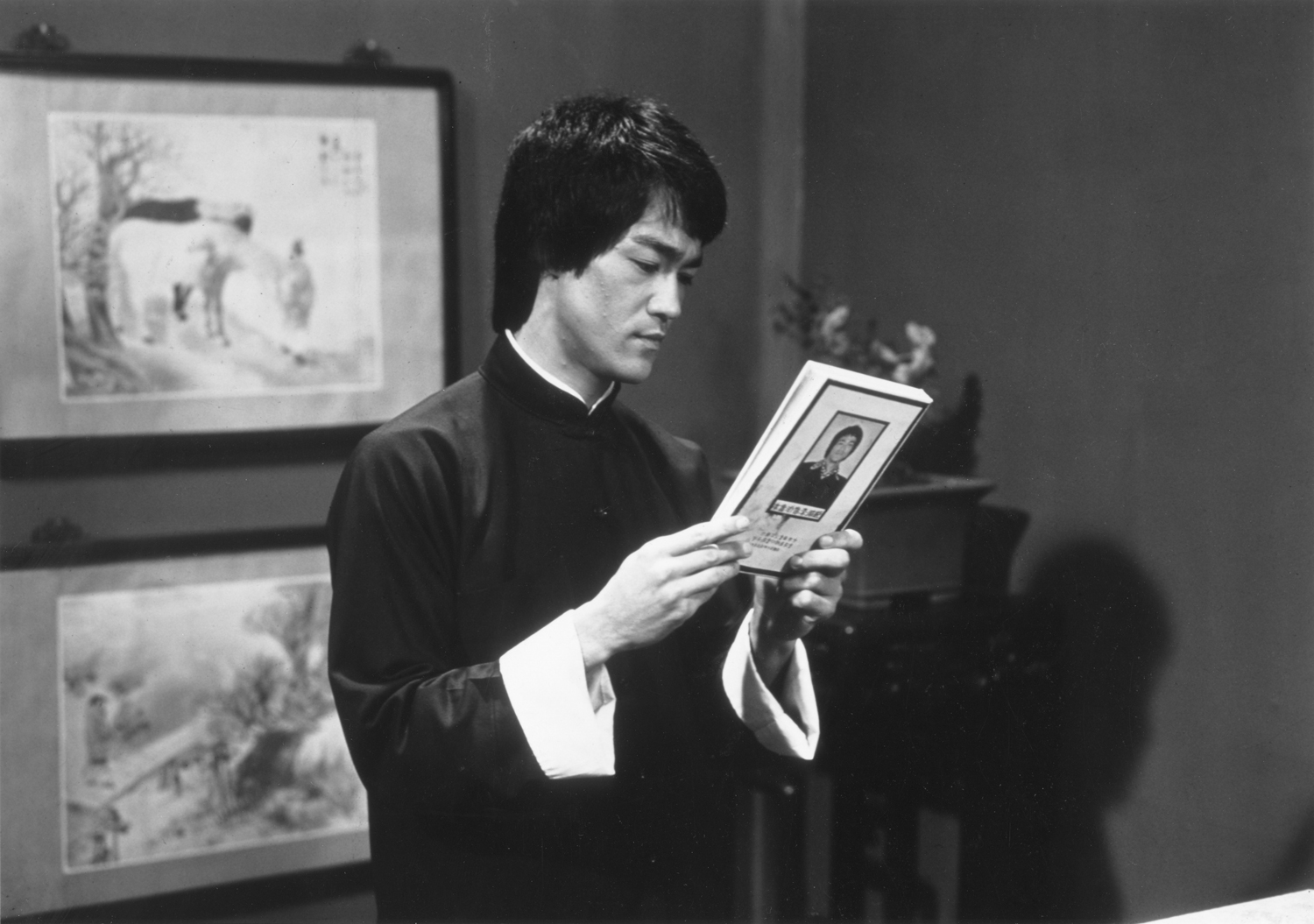#110 Bruce Lee Library - Commentaries on Living
As we have mentioned before, Bruce Lee was an avid reader and pursuer of knowledge. Bruce had a passionate intensity around his desire to learn. He had an extensive library and would annotate many of his books. After reading these books, Bruce would write journal entries about what he had read. Bruce would read these books and synthesize the ideas, he would take the bits he liked, and you’ll notice that he used similar language in his own writings. Now we have those books as a part of the Bruce Lee Archive.
This week we share another book from the Bruce Lee Library, Commentaries on Living 1st Series by Jiddu Krishnamurti.
Jiddu Krishnamurti (11 May 1895 – 17 February 1986) was a philosopher, speaker and writer. His subject matter included psychological revolution, the nature of mind, meditation, inquiry, human relationships, and bringing about radical change in society. He constantly stressed the need for a revolution in the psyche of every human being and emphasized that such revolution cannot be brought about by any external entity, be it religious, political, or social.
Krishnamurti was born in India. In April 1909 Krishnamurti first met Charles Webster Leadbeater, who claimed clairvoyance. Leadbeater had noticed Krishnamurti on the Society's beach on the Adyar river, and was amazed by the "most wonderful aura he had ever seen, without a particle of selfishness in it." In his early life he was groomed to be the new World Teacher but later rejected this mantle and withdrew from the Theosophy organization behind it. Krishnamurti said he had no allegiance to any nationality, caste, religion, or philosophy, and spent the rest of his life travelling the world, speaking to large and small groups and individuals. He wrote many books.
At Ojai in August and September 1922, Krishnamurti went through an intense 'life-changing' experience. This has been variously characterised as a spiritual awakening, a psychological transformation, and a physical reconditioning. The initial events happened in two distinct phases: first a three-day spiritual experience, and two weeks later, a longer-lasting condition that Krishnamurti and those around him referred to as the process. This condition recurred, at frequent intervals and with varying intensity, until his death.
His last public talk was in Madras, India, in January 1986, a month before his death at his home in Ojai, California. His supporters — working through non-profit foundations in India, Great Britain and the United States — oversee several independent schools based on his views on education. They continue to transcribe and distribute his thousands of talks, group and individual discussions, and writings by use of a variety of media formats and languages. (from Wikipedia, read more here)
Krishnamurti held no allegiance to any nationality, caste, religion, or philosophy, which is a perspective that Bruce Lee shared. Both Krishnamurti and Bruce believed that personal change must come from the self.
Bruce Lee had many books by Krishnamurti, and his copy of Commentaries on Living 1st Series (published 1956) is heavily annotated and underlined.
One of the first parts Bruce underlined in this book is:
“Identification destroys freedom and only in freedom can there be the highest form of sensitivity. Does not the very act of identification put an end to inquiry, to discovery? To experience, all identification must cease.” – Krishnamurti
Bruce often talked about how identifying something as right or wrong, or choosing one school of martial arts over another, would limit personal growth. Once we have identified and labeled something then we stop thinking about it and are no longer in inquiry.
When you identify strongly with one thing, then you close off your sensitivity.
“The more we struggle for or against identification, the greater is the resistance to understanding.” – Krishnamurti
When you label someone, you stop trying to understand who they are, and this leaves no room for compassion.
“By its very nature, thought is separative.” – Krishnamurti
The brain is a classifying machine. When you are classifying you are identifying and separating. People do not always act in accordance to how you have labeled them. By not separating people with identifying labels, you can have more compassion and inquiry with people.
When you identify something as “bad” then you take it out of the context of environment and all of the roles that need to be played.
“Humility is not an achievement; it is not a virtue to be cultivated. A virtue that is cultivated ceases to be a virtue, for then it is merely another form of achievement, a record to be made.” – Krishnamurti
Bruce writes a lot about this concept. The moment that you actively reach for something then you are already outside of it. The minute you concoct the plan to be virtuous, that is not virtuous. Virtue exists just in the being, not for being recognized as virtuous.
“Truth is the understanding of what is from moment to moment without the burden or the residue of the past moment.” – Krishnamurti
Bruce spoke a lot about being present and letting go of the past so that you can live each moment refreshed. Be present with the empty cup.
“Conversion is a change from one belief or dogma to another, from one ceremony to a more gratifying one, and it does not open the door to reality. On the contrary….they offer you a better cage.” – Krishnamurti
Krishnamurti has some heady and difficult to live concepts. As humans we naturally move from one belief system to one that is similar but slightly more inclusive. The real thing that we are striving for, that both Bruce and Krishnamurti were talking about, is for there to be no container, to be fully present in the moment, and to be able to move in a thousand directions at once.
It takes great trust in the universe to be in this kind of posture. So much of what we are trying to do is defend against possible bad things. Both Krishnamurti and Bruce are saying forget that worry, and be present.
“Truth is outside of all fears, hopes and patterns.” – Krishnamurti
Bruce talked about being outside of set patterns, about not reacting in a set pattern, and being fully open and aware.
“Be ready, not tense.” – Bruce Lee
“Ignorance is the lack of self-awareness; and knowledge is ignorance when there is no understanding of the ways of the self. Understanding of the self is freedom from knowledge. The desire to store up is the desire to be secure, to be certain. This desire for certainty through identification, through condemnation and justification, is the cause of fear, which destroys all communion. Accumulation is self-enclosing resistance, and knowledge strengthens this resistance.” – Krishnamurti
Bruce talked about the importance of self-knowledge and seeking self-knowledge, but you do not want to store-up that knowledge because it creates a resistance towards more growth. Instead, self-knowledge should be a knowing within yourself, self-knowledge is absorbed into your self.
“Self-knowledge is to be discovered in the action of relationship; and all action is relationship. Self-knowledge does not come about through self-isolation, through withdrawal; the denial of relationship is death. Death is the ultimate resistance. Resistance, which is suppression, substitution or sublimation in any form, is a hindrance to the flow of self-knowledge. What is is the implicit; and awareness of the implicit, without any choice, is the unfoldment of it. This unfoldment is the beginning of wisdom.” – Krishnamurti
All action is relationship. It is harder to know yourself through isolation and withdrawal.
“Simplicity of the heart is of far greater importance and significance than simplicity of possessions.” – Krishnamurti
“Self-knowledge comes into being through awareness of the moment-by-moment responses to the movement of life. Will is the very essence of desire; and to the understanding of desire, will become a hindrance.” – Krishnamurti
Self-knowledge comes into being through the responses we have to life. How we respond, internally or externally, in every moment is saying something about who we are. We put our will towards the things that we want.
Bruce Lee had a slightly different definition of Will that included the heart. Bruce considered himself a self-willed man. To Bruce, willpower was an expression of the heart.
Even though Bruce loved this kind of heady philosophy, he very much lived in the reality of the present, and was trying to accomplish specific goals in his life. Bruce was actively trying to integrate these ideas of the yielding will, taking natural action, the sense of stillness, and the void.
“There is no path to truth. Truth must be discovered, but there is no formula for its discovery. What is formulated is not true. You must set out on the uncharted sea, and the uncharted sea is yourself. You must set out to discover yourself, but not according to any plan or pattern, for then there is no discovery. Discovery brings joy—not the remembered, comparative joy, but joy that is every new. Self-knowledge is the beginning of wisdom in whose tranquility and silence there is the immeasurable.” – Krishnamurti
All of this is what Bruce was trying to manifest. No one can give us the roadmap to wisdom, self-discovery, and truth; we have to create our own path.
When something resonates with you, write it down.
We’d love to hear about your journey! Write to us at hello@brucelee.com or tag us @brucelee on social media with #bruceleepodcast.
We get many emails requesting advice with “What would Bruce Lee do?” and would like to start a “What would Bruce Lee do?” section of the podcast where Shannon and Sharon respond to your emails for advice. If you need advice and are wondering, “What would Bruce Lee do?” write to us at hello@brucelee.com


